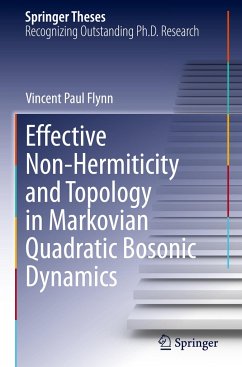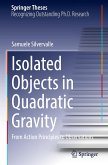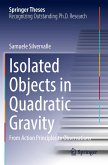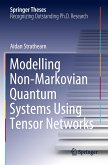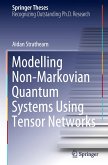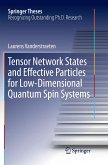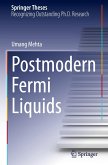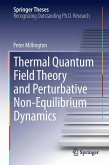This thesis provides an in-depth investigation of effective non-Hermiticity and topology in many-mode, non-interacting, bosonic systems. It also establishes the extent to which one must move beyond the Hamiltonian, closed-system setting, in order to uncover signatures of genuine symmetry-protected topological (SPT) physics in "free" (mean-field) bosons. While SPT phases of free fermionic matter and their associated zero-energy boundary-localized modes have been thoroughly explored, similar physics in free bosonic systems still remains elusive. No fermionic counterpart exists for the distinctive dynamical behavior that arises from the effective non-Hermiticity, intrinsic even at equilibrium, to bosonic Hamiltonians. Therefore, a much needed paradigm shift is required to address major conceptual roadblocks in the search for SPT bosonic phases.
The analysis within develops, in particular, the notion of topological metastability in quadratic bosonic systems subject to Markovian dissipation. The resulting dynamical paradigm was found to be characterized by both a sharp separation between transient and asymptotic dynamics and non-trivial topological invariants. It also features long-lived boundary-localized "Majorana boson" and "Dirac boson" modes, which realize tight bosonic analogues to the edge modes characteristic of fermionic SPT phases. This comprehensive look into non-interacting bosonic systems breaks important new ground for re-imagining quantum phenomena beyond equilibrium, with novel applications in quantum science.
The analysis within develops, in particular, the notion of topological metastability in quadratic bosonic systems subject to Markovian dissipation. The resulting dynamical paradigm was found to be characterized by both a sharp separation between transient and asymptotic dynamics and non-trivial topological invariants. It also features long-lived boundary-localized "Majorana boson" and "Dirac boson" modes, which realize tight bosonic analogues to the edge modes characteristic of fermionic SPT phases. This comprehensive look into non-interacting bosonic systems breaks important new ground for re-imagining quantum phenomena beyond equilibrium, with novel applications in quantum science.

